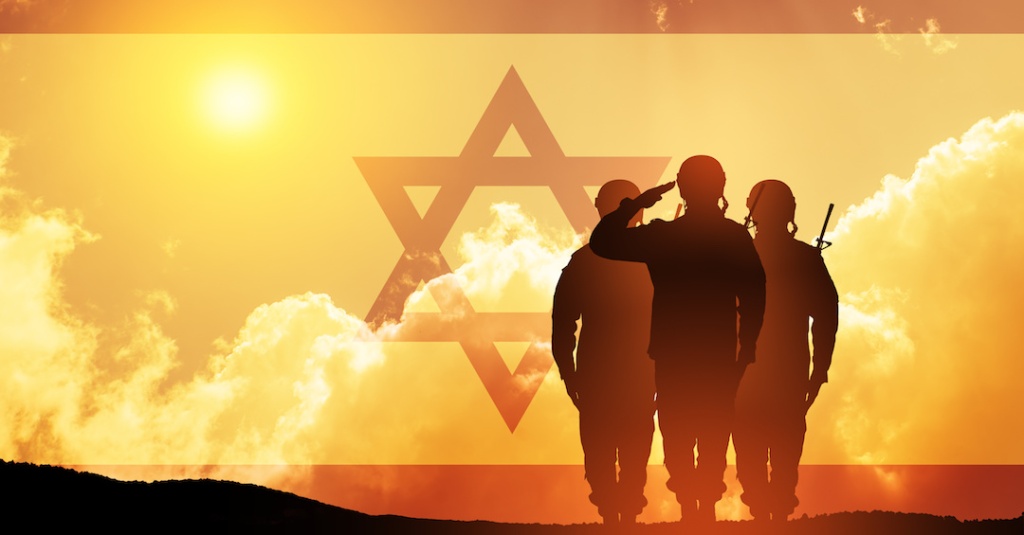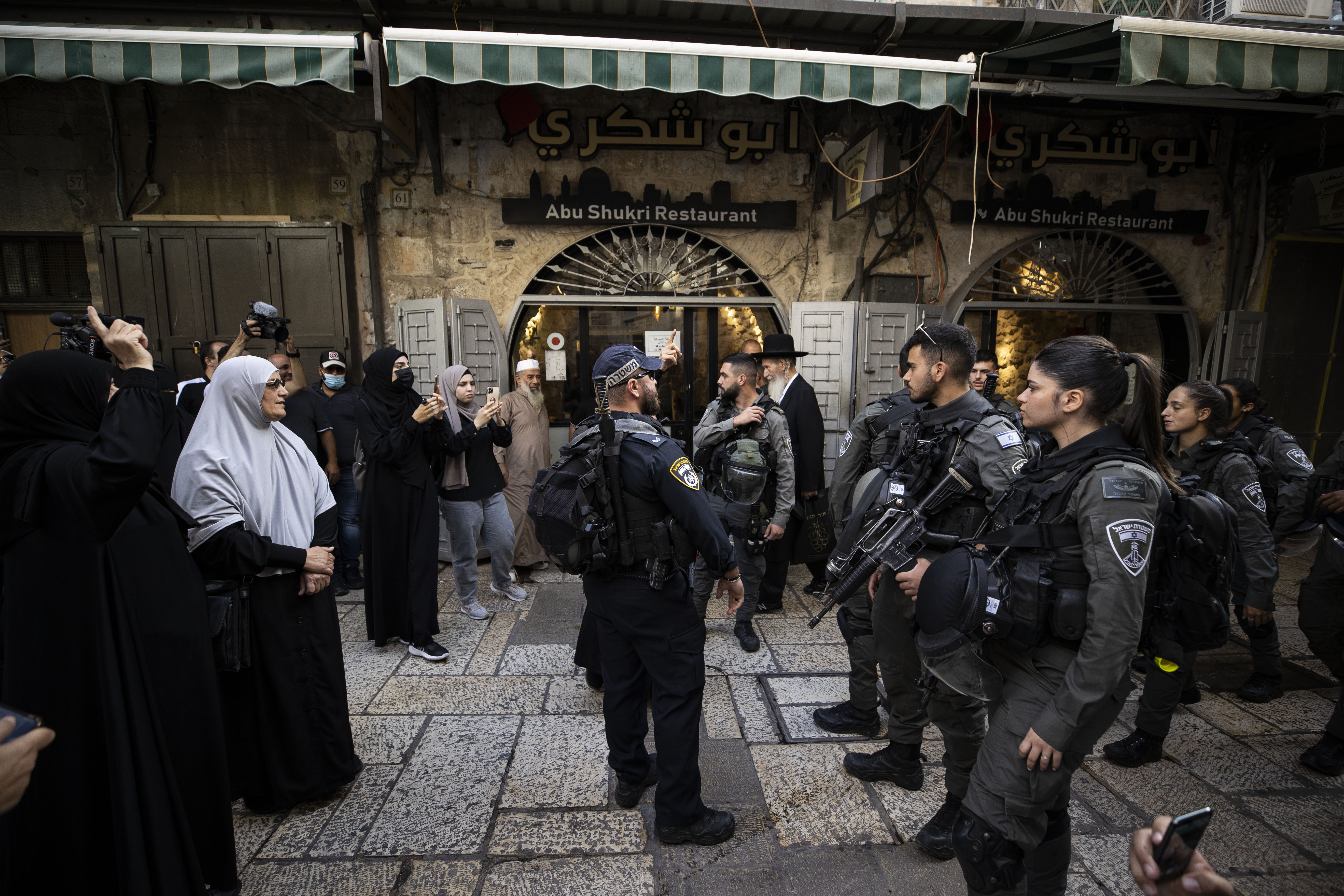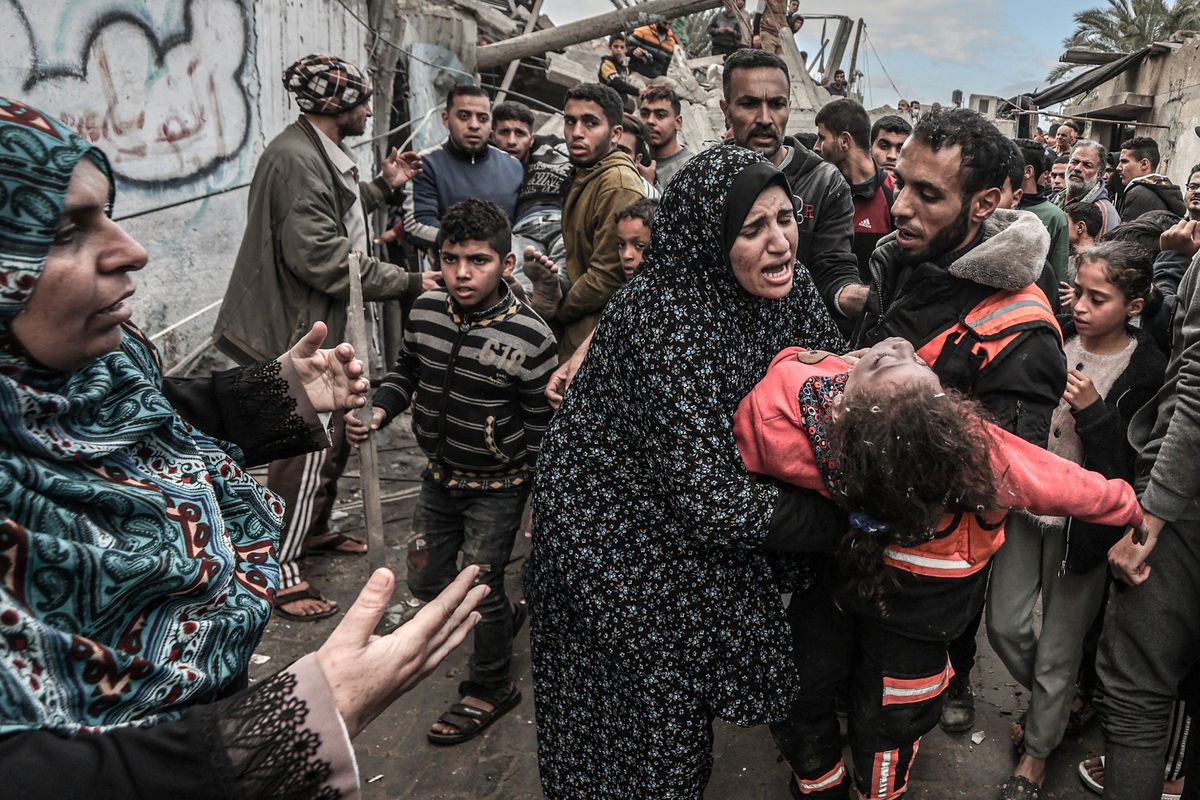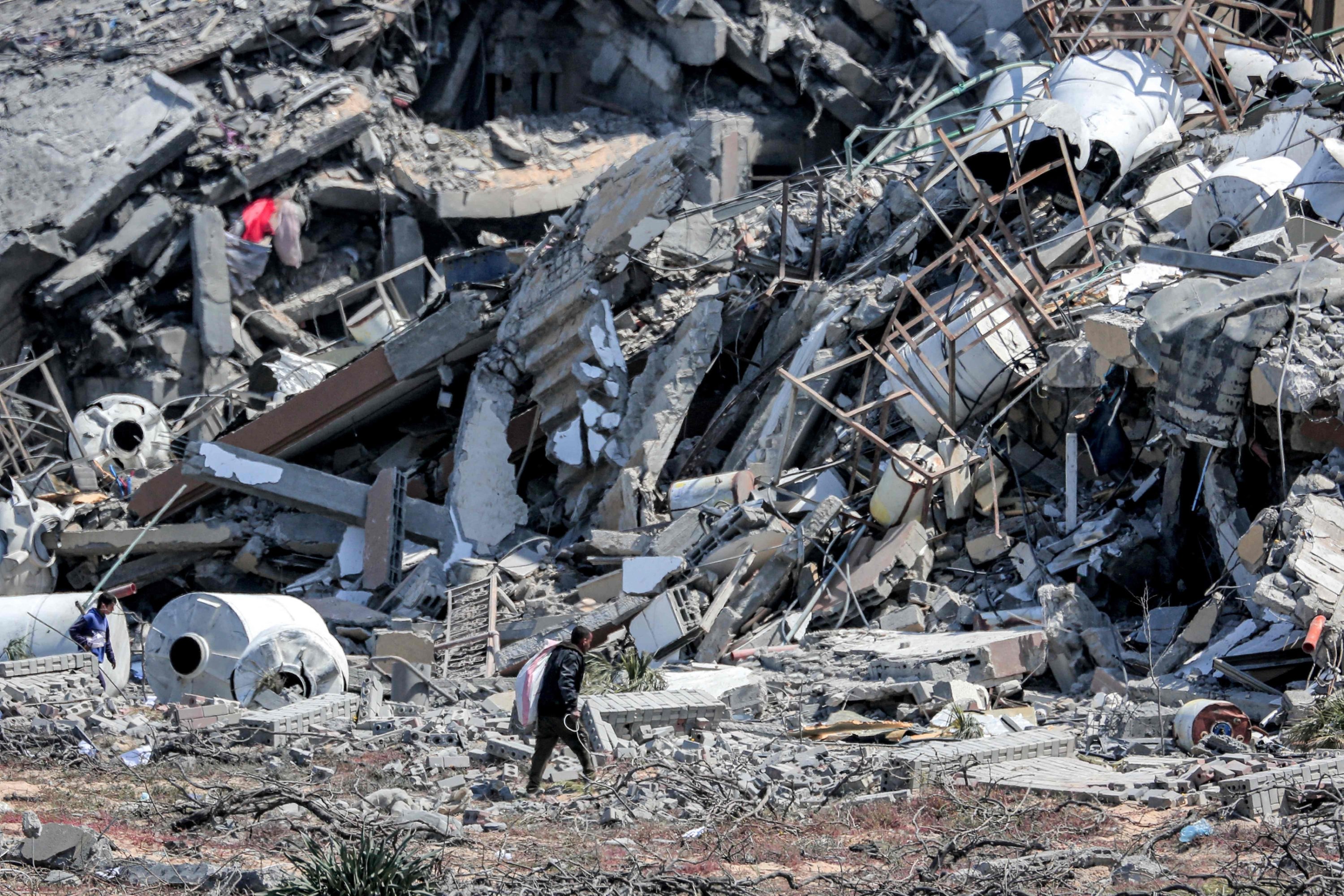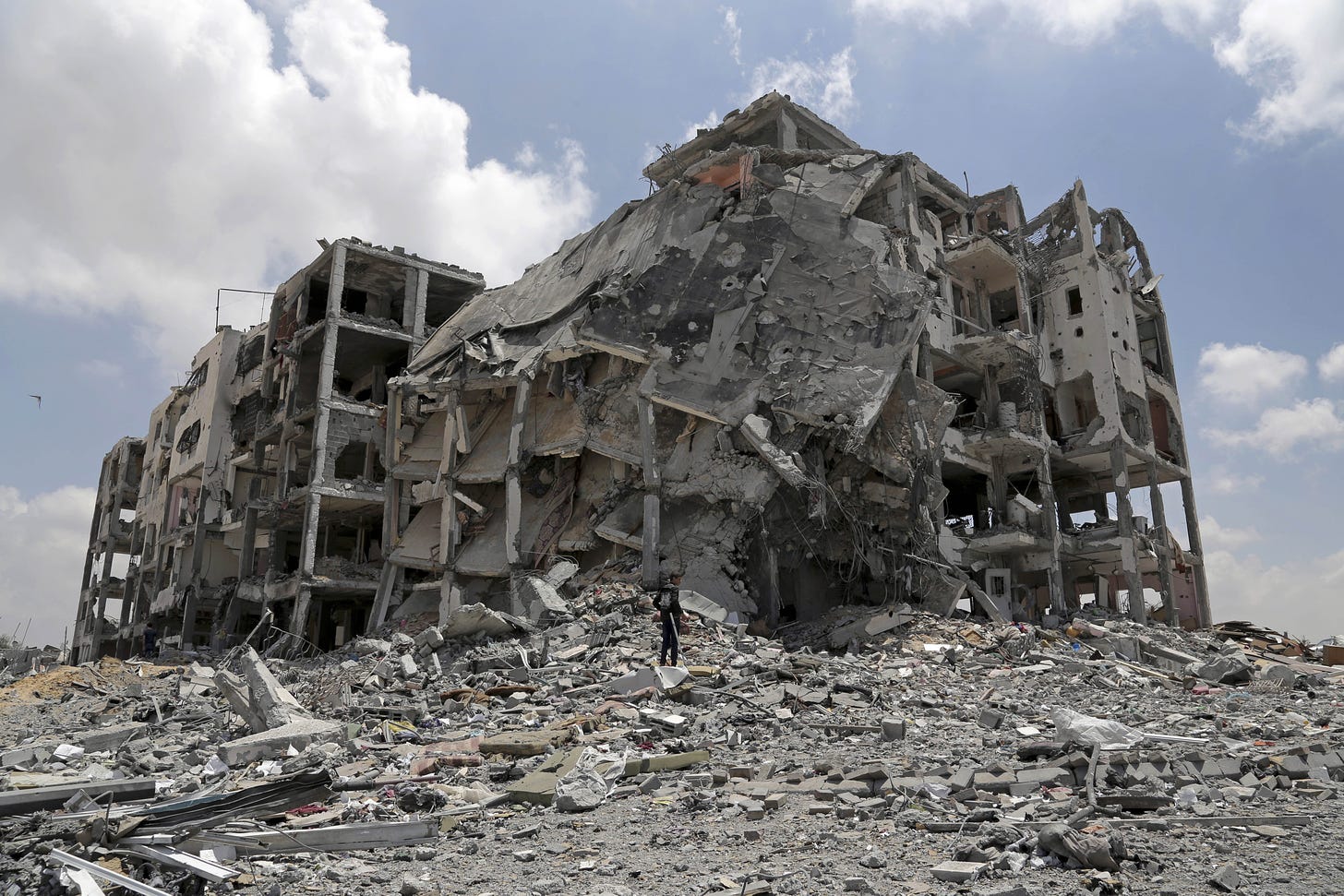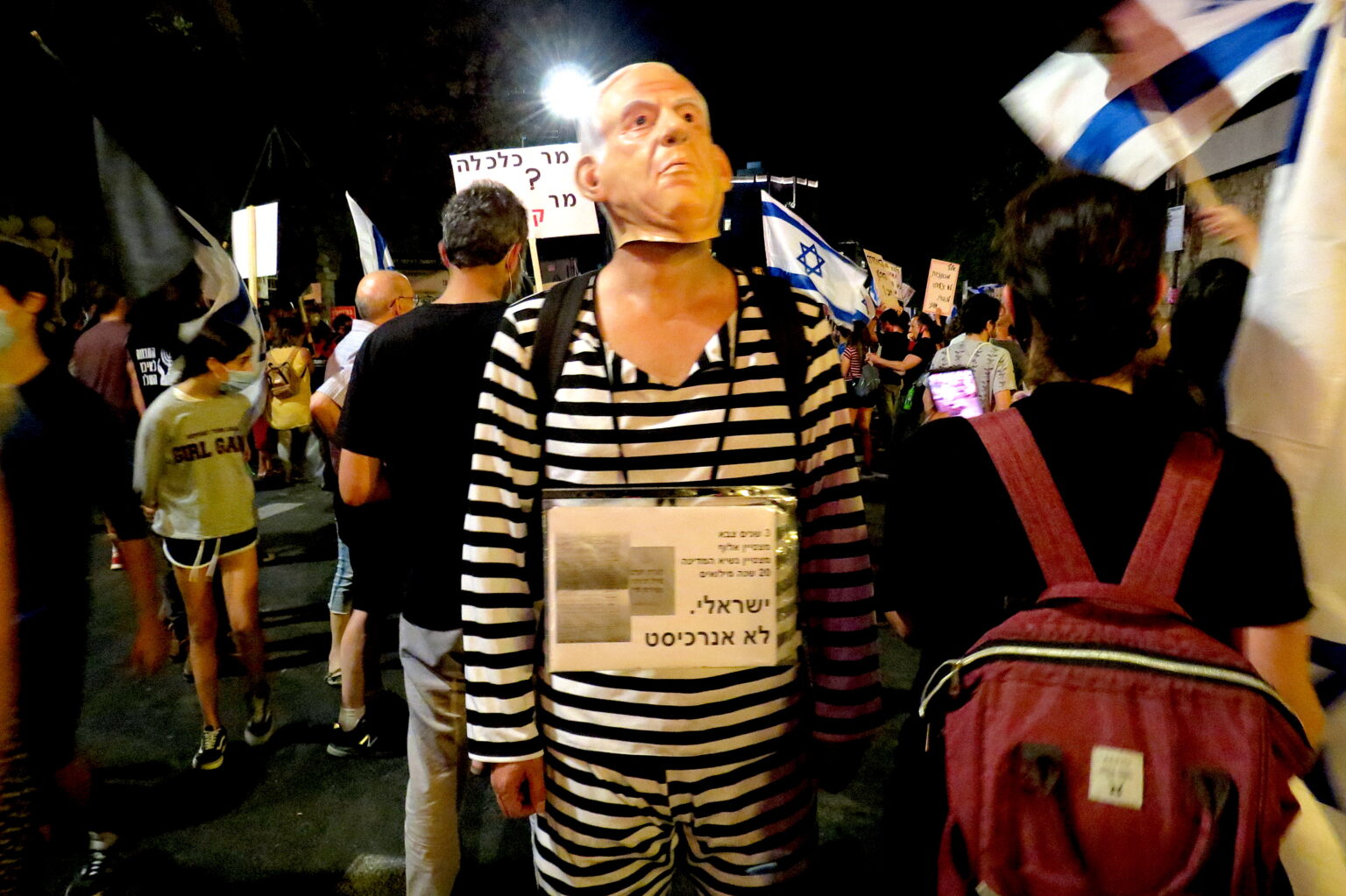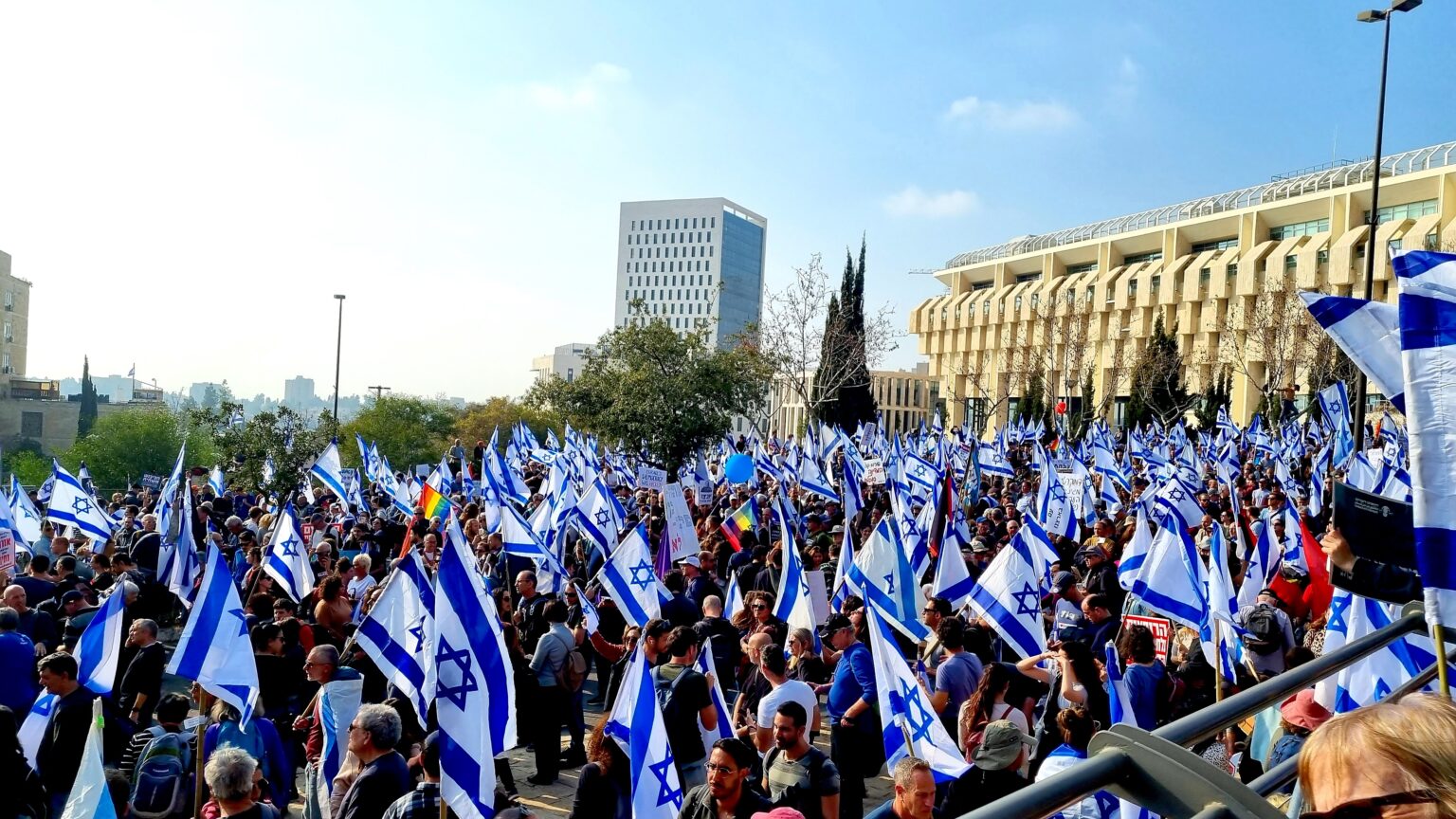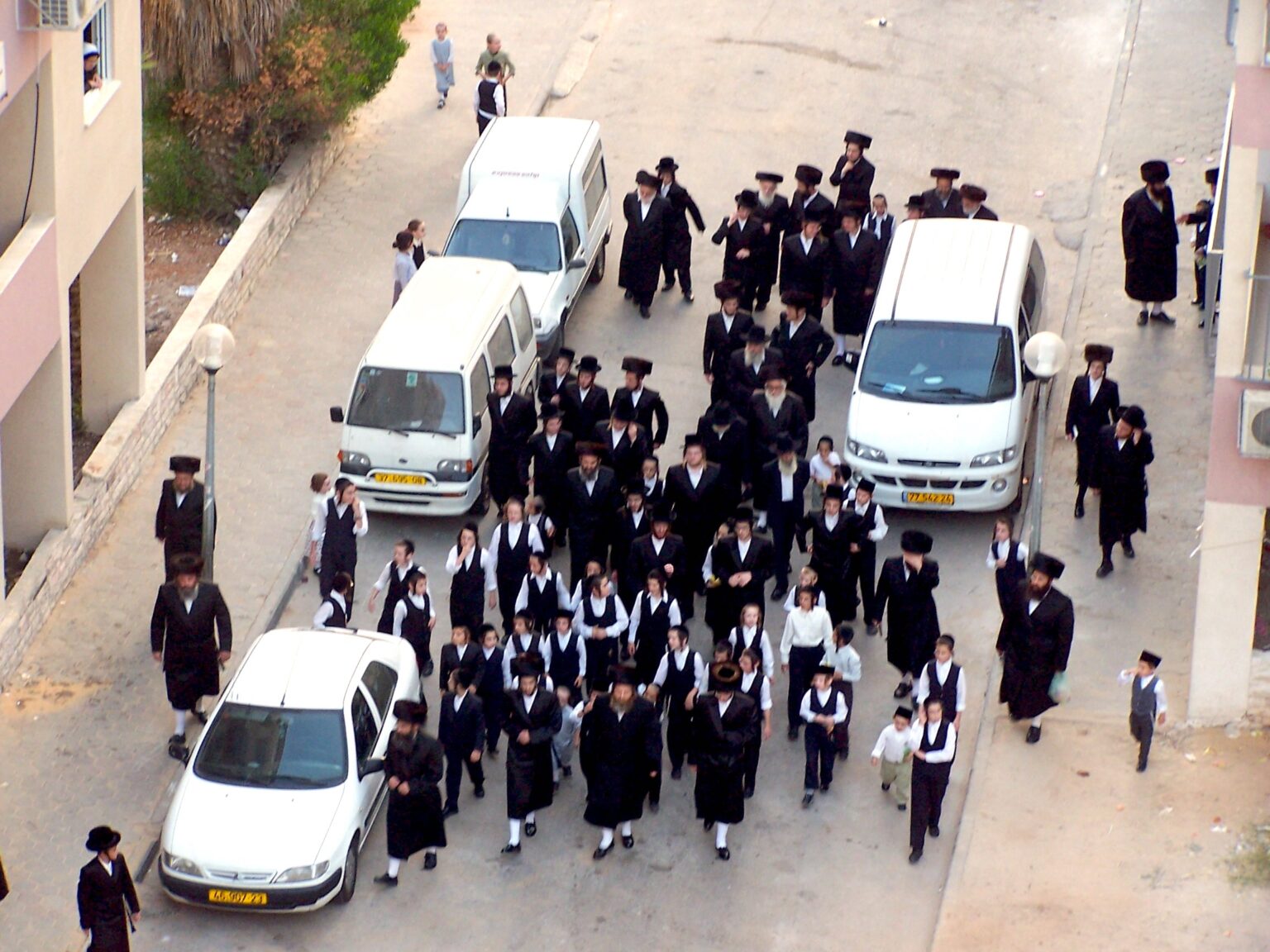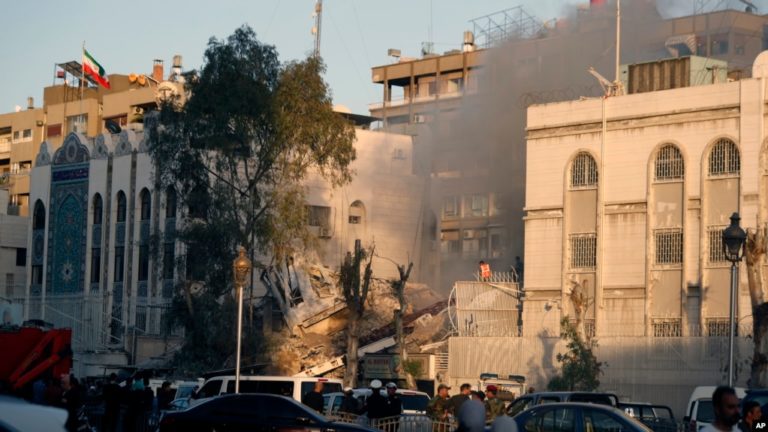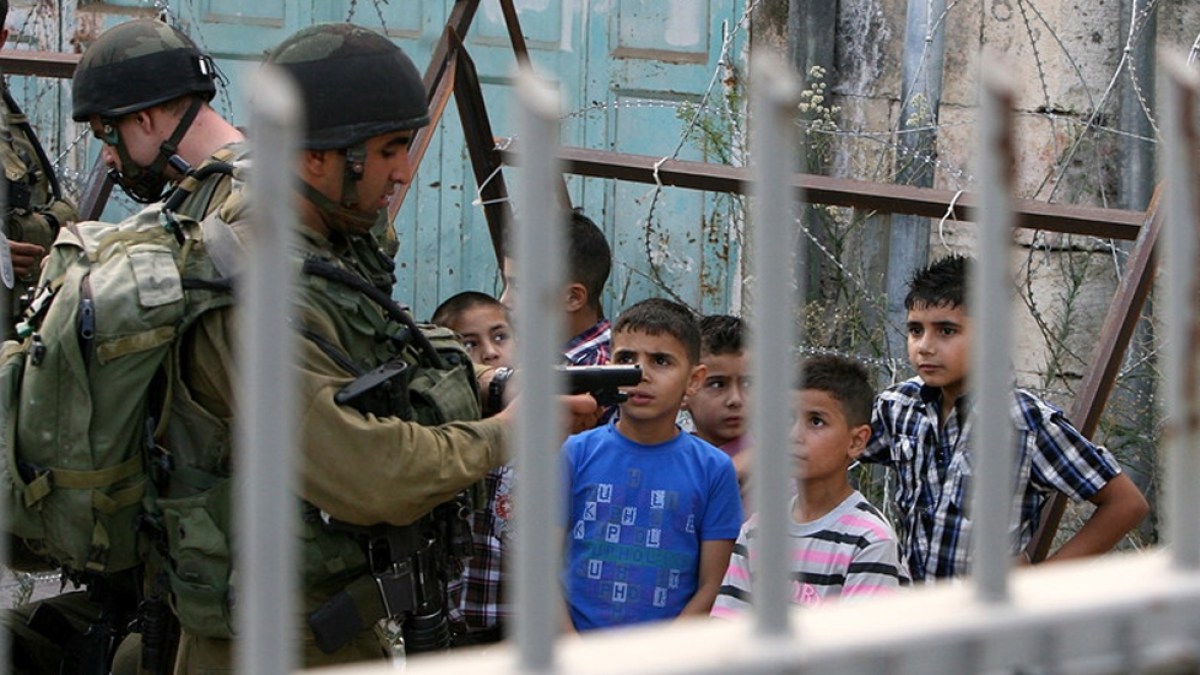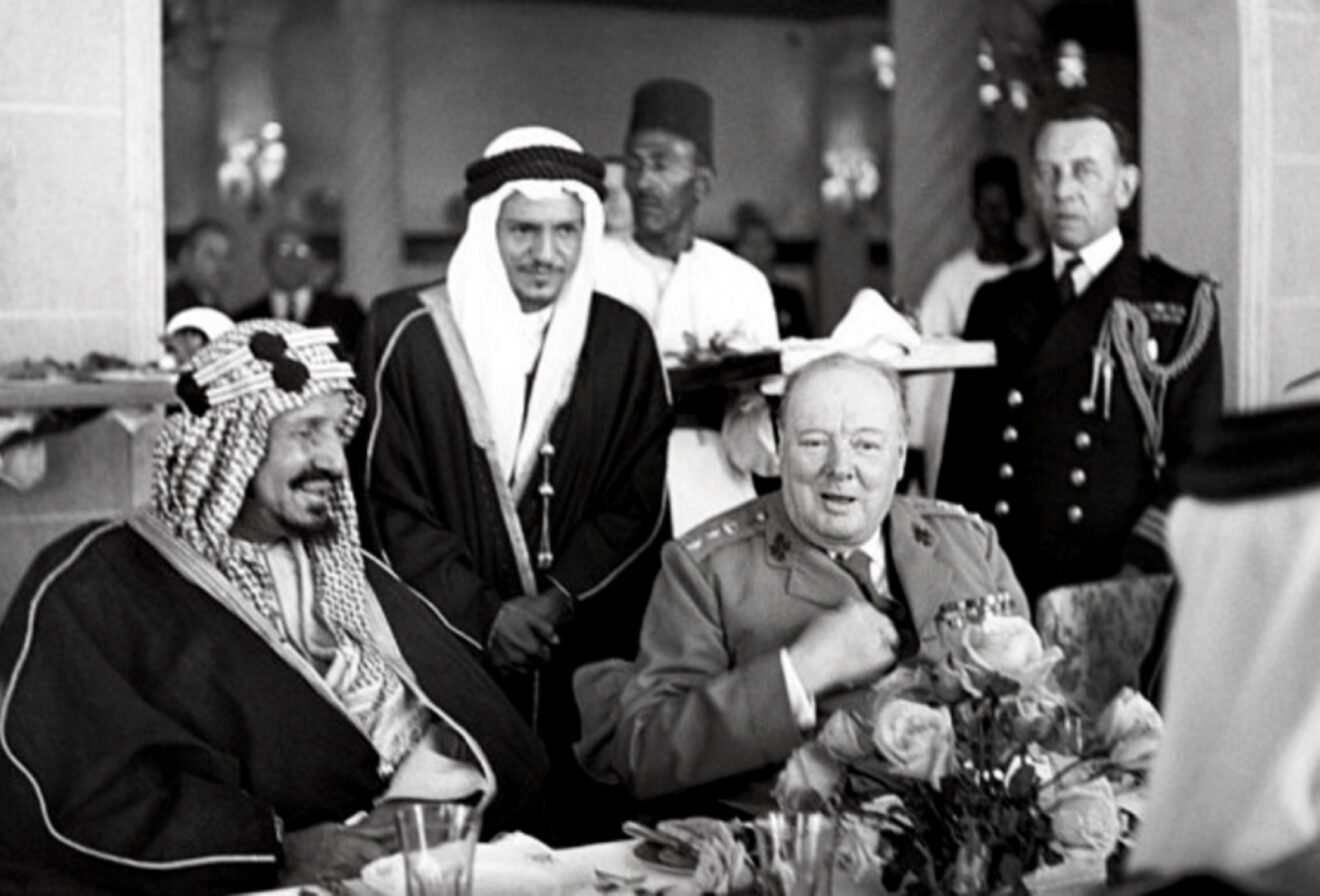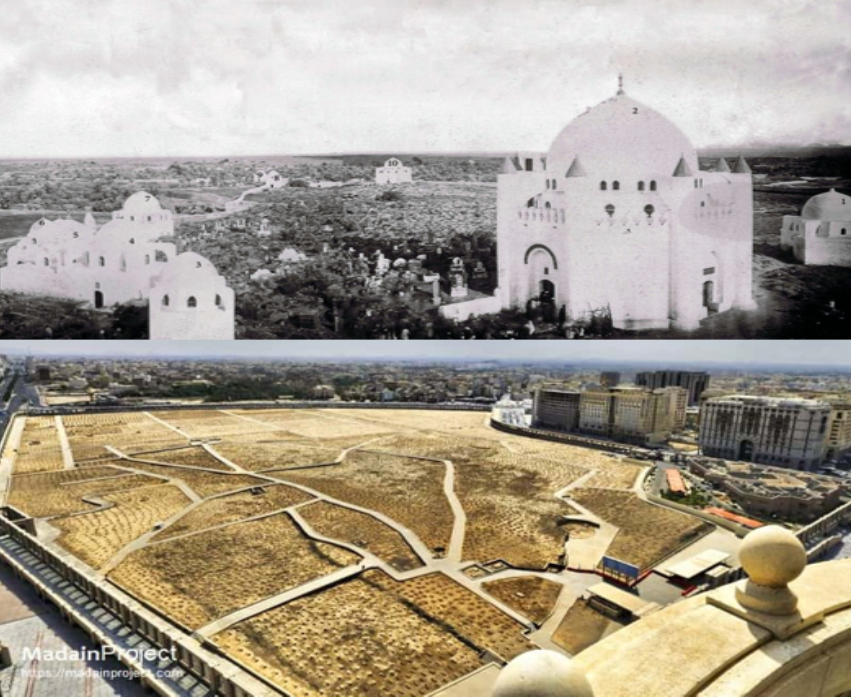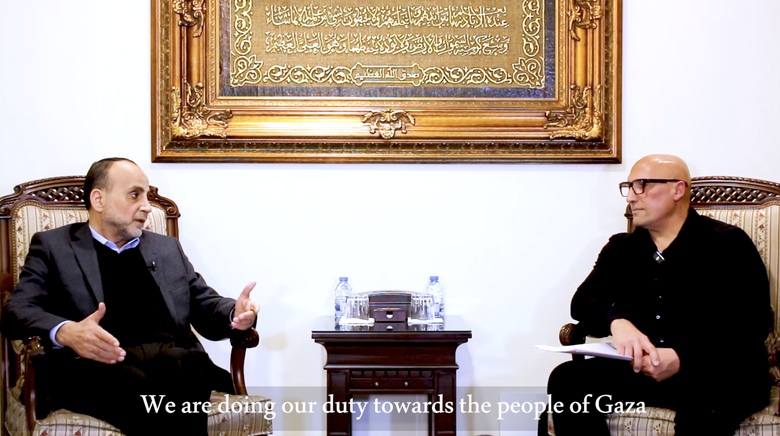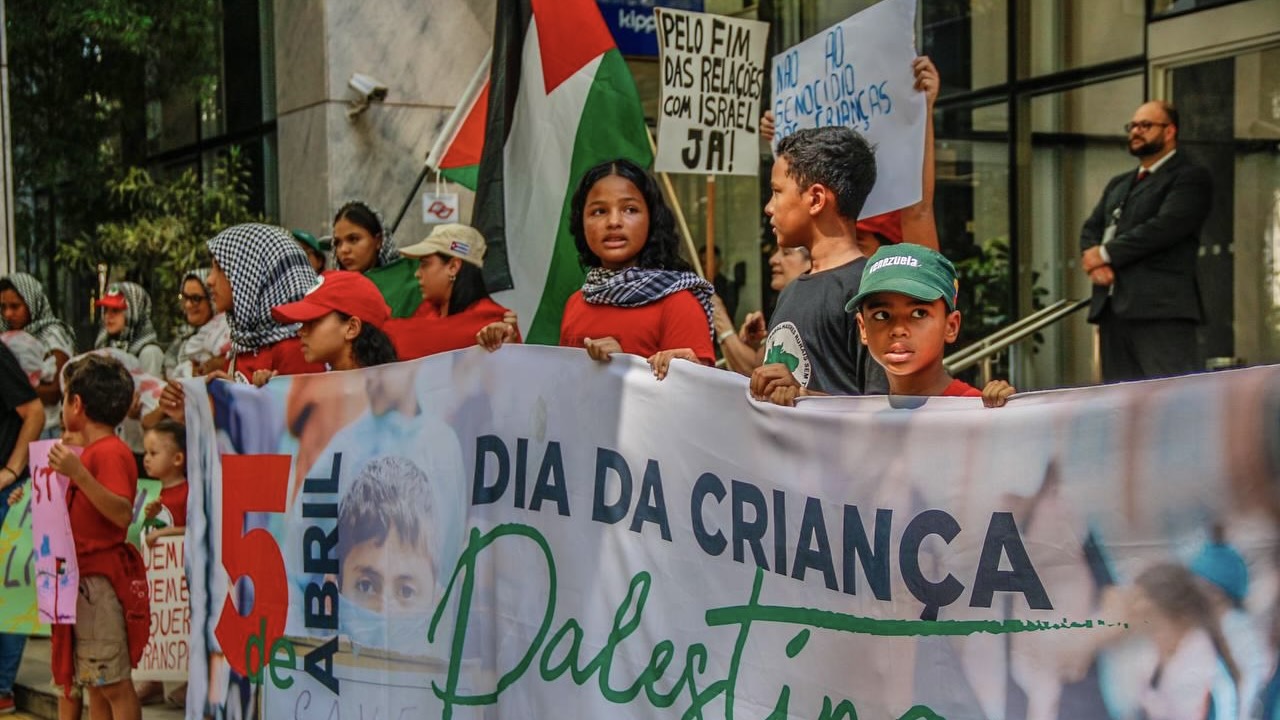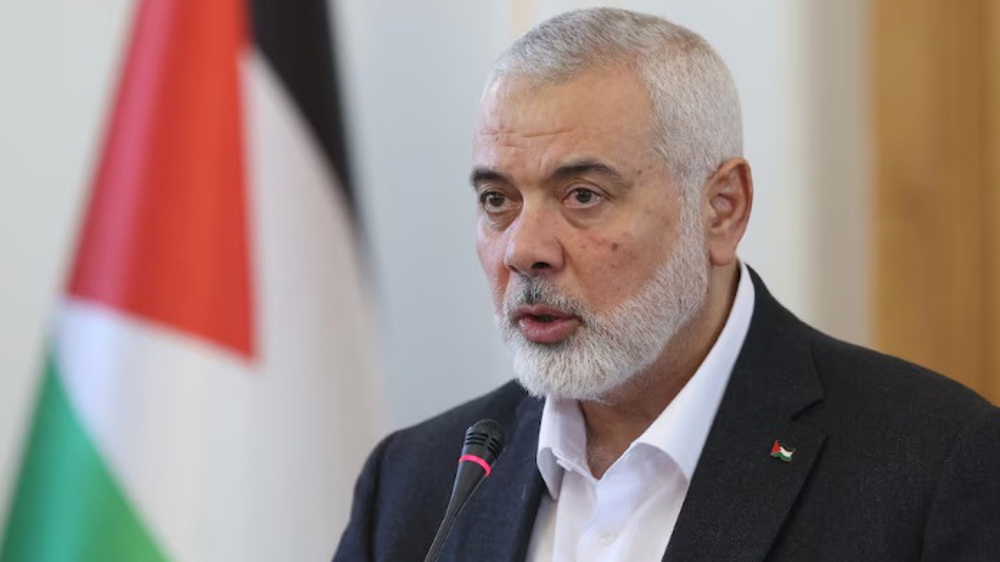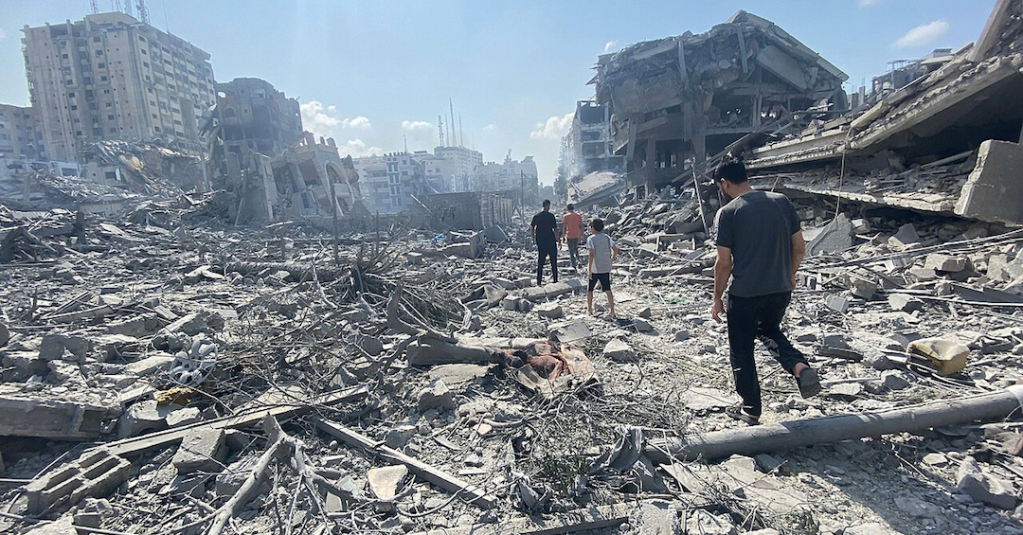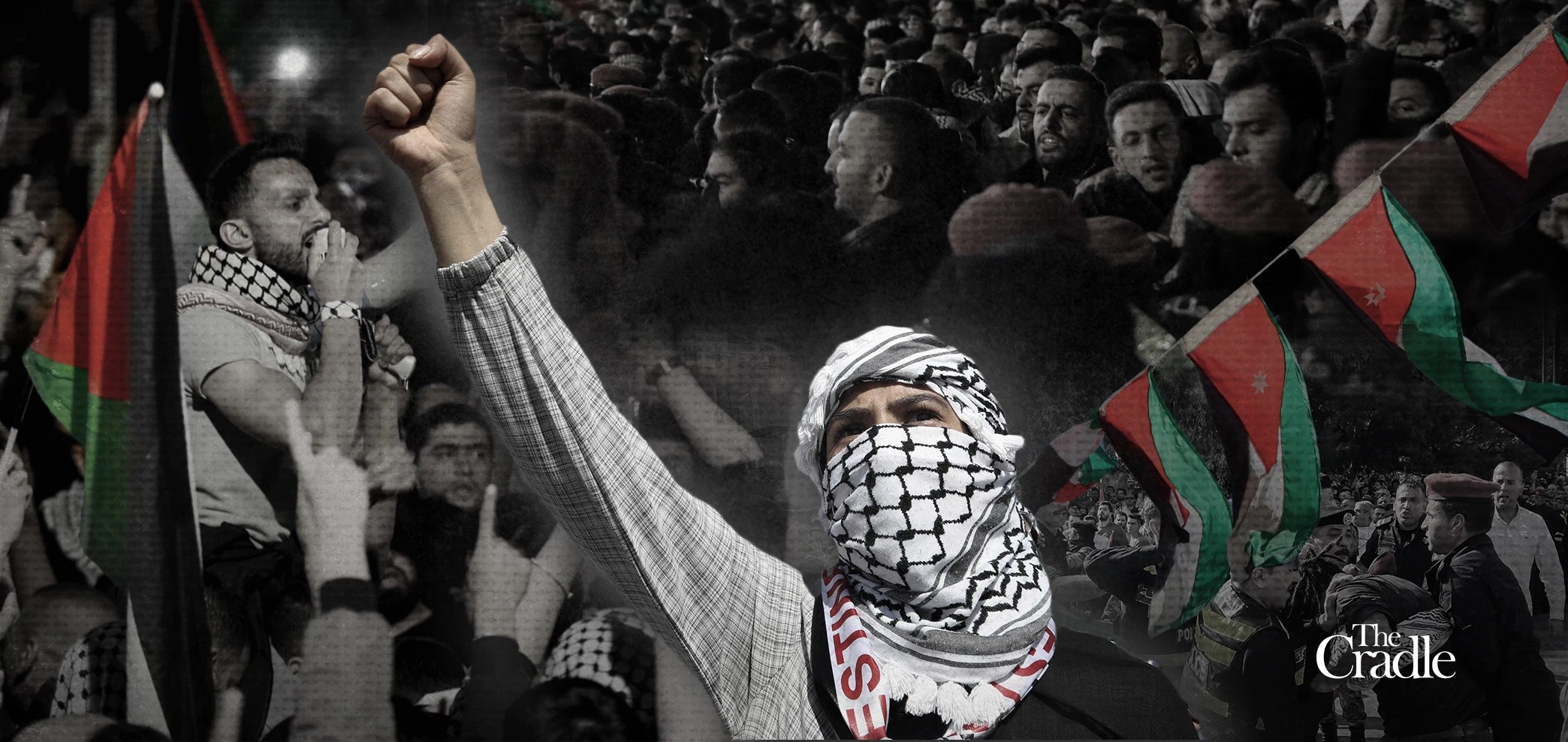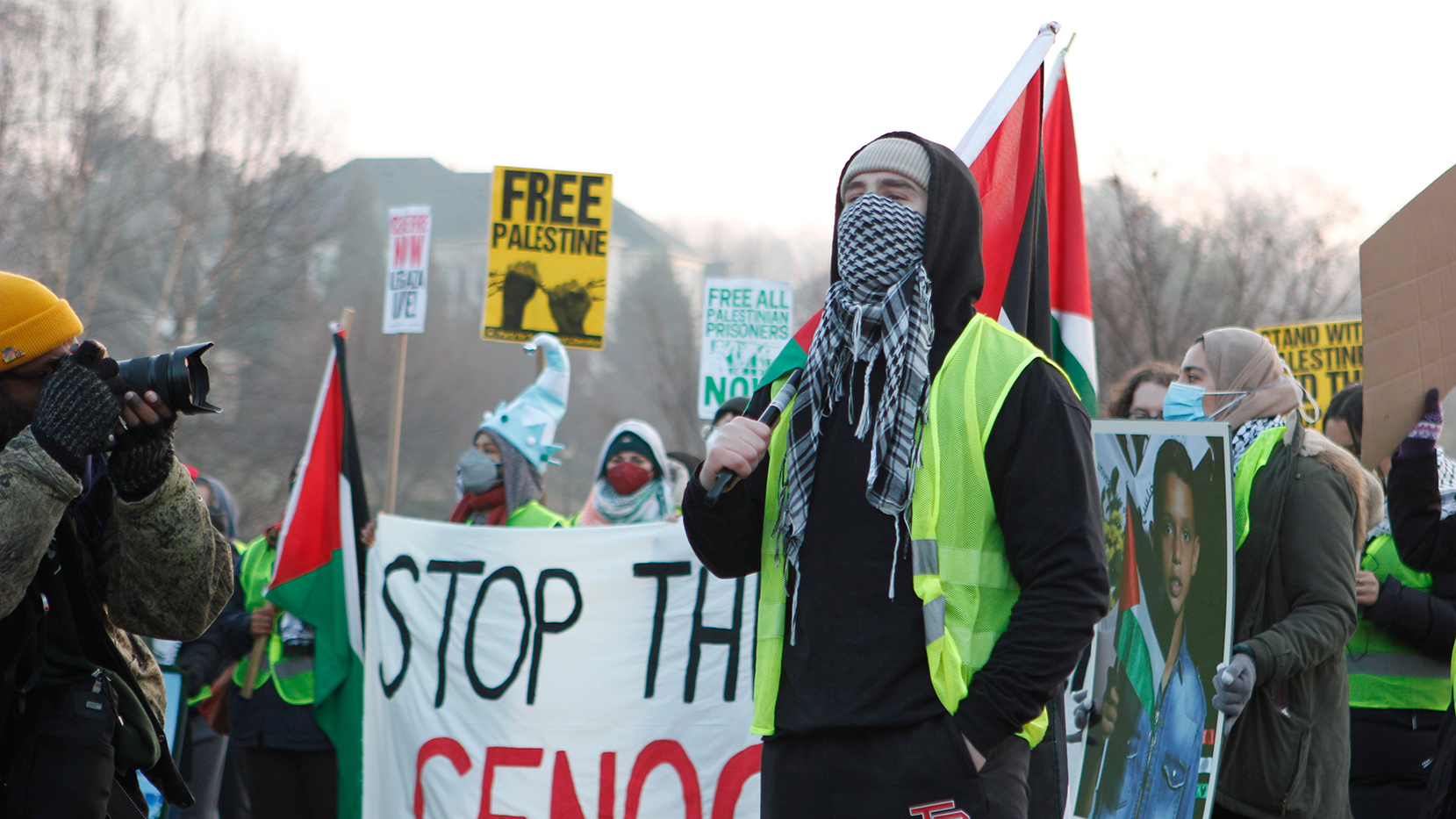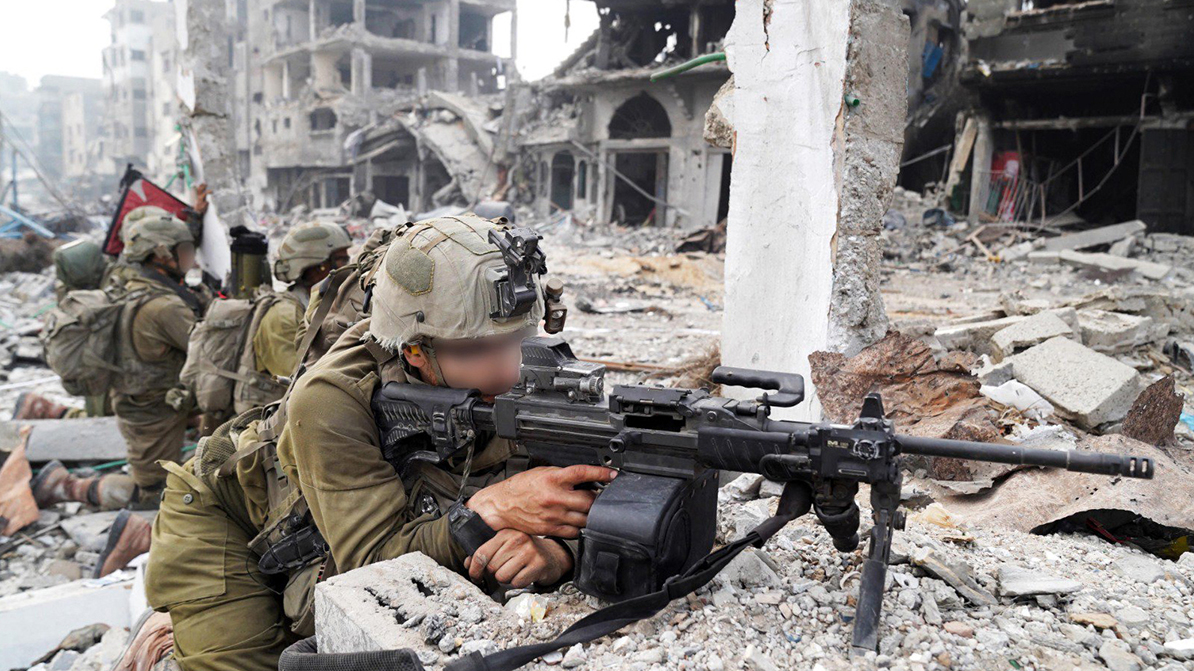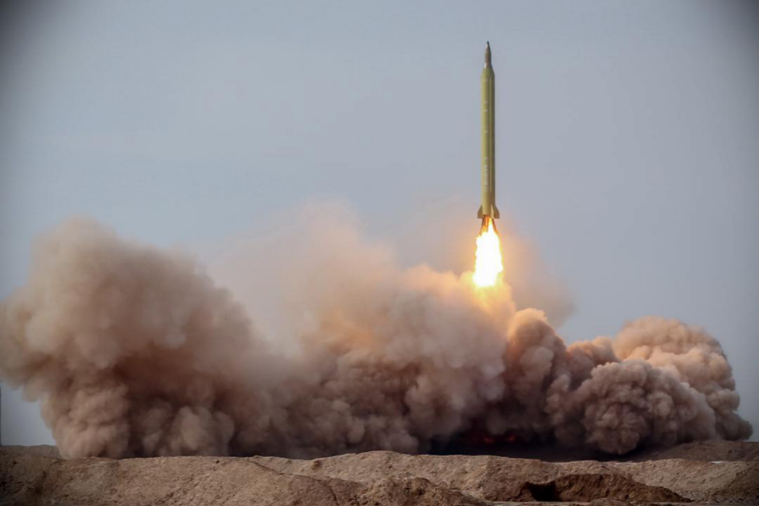US President Joe Biden's goals in Gaza align with Tel Aviv's. But his Israeli counterpart Benjamin Netanyahu's execution of these objectives are heavily clashing with US interests, undermining its soft power elsewhere in the region.
Mohamad Hasan Sweidan
APR 5, 2024

(Photo Credit: The Cradle)
In an interview with MSNBC last month, US President Joe Biden took a rare firm stance against his staunch Israeli ally, insisting that an invasion of Rafah by the occupation army – devoid of a civilian-focused plan – would cross a “red line.” He then countered his warning by affirming Washington’s unwavering support of Tel Aviv and promising that he would never “leave Israel.”
The Israeli Broadcasting Corporation, citing unnamed political sources, said that the phone call between Biden and Netanyahu on 4 April was “more difficult than expected.” The White House said that Biden's tough tone during the call reflected “growing frustration” over Tel Aviv’s lack of cooperation in protecting civilians.
This contradiction in words and behavior highlights the dilemma the White House faces in its interactions with Israeli Prime Minister Benjamin Netanyahu. You can’t have it both ways. While the US aims to temper Netanyahu’s aggressive policies – at least for public consumption – it seeks to do so without undermining the stability of his extremist coalition government.
In short, every word is weighed in public US announcements to balance that fine line. Following a virtual meeting between National Security Advisor Jake Sullivan and Israeli officials on 1 April, which included talks on the proposed Israeli incursion in Rafah, a statement from the White House merely noted: “The two sides, over the course of two hours, had a constructive engagement on Rafah. They agreed that they share the objective to see Hamas defeated in Rafah.”
On 26 March, an Israeli Defense Ministry briefing revealed that US Defense Secretary Lloyd Austin “expressed the view that Hamas’ remaining battalions in Rafah must be dismantled, that that’s a legitimate goal that we share.” He added that “Rafah should not be a safe haven for Hamas. Nowhere in Gaza should be.”
It is safe to conclude from these bland statements that there is a meeting of the minds between the Biden administration and the Netanyahu government over the war’s objectives. From the onset of hostilities, the US has actively collaborated with Israeli decision-making processes, ensuring alignment with strategic goals. High-ranking US officials, including Biden, Secretary of State Antony Blinken, and Secretary Austin, have participated in Israeli War Cabinet meetings.
Three days after the launch of Al-Aqsa Flood, Biden made it “crystal clear” that “We stand with Israel. We stand with Israel. And we will make sure Israel has what it needs to take care of its citizens, defend itself, and respond to this attack.”
Tensions grow with Tel Aviv
Despite this shared strategic vision, recent developments have highlighted emerging disagreements between Netanyahu and Biden. The differences revolve around the methodologies used to safeguard Israel’s security and future. The core of the dispute can be summarized as follows:
The Biden administration views the path to normalization, as set out in the Trump-era Abraham Accords of 2020, as a historic opportunity to strengthen regional peace, with the jewel in the crown being a Saudi–Israeli normalization deal.
Blinken, during a visit to Saudi Arabia, warned that ongoing military operations in Gaza might jeopardize the Saudi–Israeli normalization prospects, which is a major strategic interest for Tel Aviv at the regional level:
“Almost every country in the region wants to integrate Israel, to normalize relations with it, and to “The reality is to help Israel provide protection for it. But this requires in particular the establishment of a Palestinian state, and it also naturally requires ending military operations in Gaza.”
A Palestinian state is, of course, anathema to Netanyahu’s coalition, the most extremist government in Israel’s short history. But US concerns are also growing over the possibility of the war in Gaza leading to a broader regional war, one which the US will be forced into to protect its settler-colonial ally.
From Washington’s perspective, Israel’s identity as a “functional entity” is significant because it fulfills US geopolitical objectives in the region. Conversely, Netanyahu and the Israeli right prioritize Israel’s identity as a Jewish nation-state. This divergence becomes pronounced in the face of existential threats when national identity overshadows functional roles, posing greater risks to Israel than to the United States.
Regional interests and domestic politics
But the catastrophic humanitarian crisis in Gaza is now limiting the US’s ability to provide international support for Israel’s continued warfare, with Netanyahu’s actions exacerbating the situation and destroying the US’ human rights ’advocacy’ reputation across the globe.
In recent months, Washington has been forced to adopt rhetoric stressing the need for Israel to abide by international laws and protect civilians. At the same time, however, it continues to support the occupation state with all the tools necessary to kill the population of Gaza.
It has become abundantly clear that despite Israel’s persistent violations of international laws, norms, and conventions, the US is continuing to provide, and even increase, significant military support for Israel – all while other allies of Tel Aviv are contemplating halting the transfer of weapons to the occupation army.
Actions, after all, speak louder than words.
US public opinion reflects growing opposition to Israel’s war crimes in Gaza, with recent polls showing a majority of Americans against the occupation army’s brutalities. A Gallup poll conducted between 1 and 20 March shows that 55 percent of US respondents oppose Israeli military action in the Gaza Strip, a 10 percent rise from November polls.
Crucially, this public sentiment suggests a growing dissonance between US government actions and voter preferences, with Biden’s popularity plummeting in domestic polls.
Concurrently, the US-dominated global “rules-based” order is coming under sharp fire from peer adversaries like Russia and China, which advocate for a return to international law. Israel’s brutal Gaza assault contradicts everything Washington has preached for decades about its ‘rules.’
Tel Aviv has blanketly ignored the binding UN Security Council Resolution 2728, which stipulates a ceasefire during the holy Muslim month of Ramadan, and stands accused of violating all respects of international humanitarian law.
Netanyahu’s government is responsible for the mass murder of tens of thousands of civilians in Gaza – two-thirds of them women and children – which saw Israel dragged for the first time to the International Court of Justice (ICJ) on charges of genocide. He then proceeded to violate the 1961 Vienna Convention on Diplomatic Relations by targeting the Iranian consulate in Damascus, Syria, on 1 April.
Netanyahu’s fight for survival
Several fundamental reasons drive Netanyahu to support, confront, and even ignore Biden’s stances. At the core is the Israeli premier’s uncertain political future: He is acutely aware that halting the war without securing strategic victories that translate into political capital will devastate his political legacy, making him bear the brunt of all outcomes since 7 October.
Faced with limited alternatives, Netanyahu opts for confrontation, banking on enduring until the upcoming US elections in November.
For Israel, the stakes in the ongoing war are significantly higher than for the US because Tel Aviv’s top brass widely views it as an existential threat. This perspective galvanizes even those within Israeli society and its hawkish military who might not necessarily align with Netanyahu’s policies.
Central to Netanyahu’s resistance is his rejection of a two-state solution. He perceives the invasion of Rafah as a tactic to either circumvent negotiations with Hamas or to weaken the movement’s bargaining position. Importantly, Netanyahu aims to prevent the war’s conclusion from being interpreted as a step towards Palestinian statehood, rightly framing the conflict as a Palestinian liberation struggle.
Meanwhile, the White House continues on its impossible trajectory to balance pressure on Netanyahu with a clear commitment to Israeli security interests, including defeating Hamas. Netanyahu does not miss a beat in manipulating this situation to his advantage, twisting the narrative to ensure Israel’s interests are met, with a keen eye on how this plays out for him politically at home.
Re-evaluating relations
Commentary from both Israeli and US corners is starting to shine a light on the potentially thorny path ahead.
As Doron Matza recently wrote in the Israeli newspaper Maariv:
In the near future, the aid directed to Israel will decrease and be limited, and with it international legitimacy, not to mention the erosion of the Abraham Accords and the challenges represented by additional enemies waiting for the zero hour to turn the 7 October flood into a broader and greater catastrophe.
John Hoffman in Foreign Policy adds a scathing critique, questioning the very fabric of the US–Israel relationship: “The special relationship does not benefit Washington and is endangering US interests across the globe.”
It is time for the US to recalibrate its relationship with Israel. This isn’t about turning Israel into an adversary but about interacting with it as Washington does with any other state – with a measured distance and pragmatism.
https://thecradle.co/articles/biden-and ... y-strategy
Israel ignored deal to ‘free all civilians’ from Gaza soon after 7 Oct: Qatar
Israeli officials have made their distrust of Qatari mediation efforts heard, calling Doha a 'wolf in sheep's clothing'
News Desk
APR 5, 2024

(Photo Credit: Euronews)
Qatari officials told The Jerusalem Post on 4 April about the “complex position” that the nation has been put in as it plays the key mediator in the Israeli war on Gaza.
The Post’s Zvika Klein spoke with officials about the nation’s roles, in one instance, prodding an official about Doha’s hosting of Hamas officials and financing of Gaza’s resistance forces.
One bureaucrat responded that the hosting of Hamas leaders in Doha was an attempt to create dialogue rather than an overt support of its politics, a decision also taken at the request of Washington.
“The Israeli and US governments are those who have asked us to prevent a humanitarian crisis and financially support Gazan citizens, as well as employees of the Palestinian Authority, to maintain a sense of stability in the region,” the Qatari official said, adding that Americans and Israelis “were also the ones who asked us to let Hamas leaders stay in Doha, as they would rather have them in Doha than in Tehran or Beirut.”
Qatar is the historic mediator of conflicts between Palestinian resistance forces and Israel.
In this round of war negotiations, Doha officials said that Israel impeded efforts toward the release of the captives in Gaza.
“We approached Israel very soon after 7 October since we were able to agree with Hamas about the release of all civilian hostages,” a senior source close to the Qatari government said.
The source added that Israel took too long to respond.
“We were only answered by Israel on 16 October,” he said, adding that Israel was adamant about conducting a siege on Gaza in an attempt to release the captives on its own and establish deterrence.
According to a Hamas source, Qatar reached out to Israel on 8 October to attempt to mediate a prisoner swap deal between the Palestinian resistance and Israel.
Israel’s economy minister, Nir Barkat, said he did not trust Qatari mediation efforts and slammed the Gulf nation for “funding terror all over the world.”
“They’re a wolf in sheep’s clothing,” Barkat said. “We have to realize that them, together with Iran, are a big threat … We must wake up.”
Meanwhile, Israel's approach continues to prove fatal.
In March, Hamas’ military wing, the Qassam Brigades, estimated that the number of captives killed as a result of Israel’s attacks on the Gaza Strip “may have exceeded” 70.
https://thecradle.co/articles/israel-ig ... -oct-qatar
******
Gaza Strip: Israel Prevents WHO Mission to Hospitals
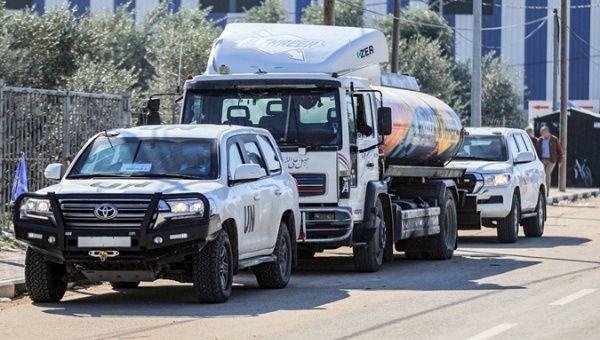
The UN health agency group was on its way to Al Ahli and Al Sahaba hospitals in the northern Gaza Strip with fuel, medical equipment, food and water. Apr. 4, 2024. | Photo: X/@WHOoPt
Published 4 April 2024 (19 hours 34 minutes ago)
The WHO denounced that the mechanisms of deconfliction (coordination with the combatants), which for decades have allowed aid to be delivered in other wars, are not being respected in this case.
On Thursday, a World Health Organization (WHO) mission to hospitals in northern Gaza was suspended after the Israeli army held it at a checkpoint for hours.
According to the report by the organization's official in the area, the UN health agency group was on its way to Al Ahli and Al Sahaba hospitals in the northern Gaza Strip with fuel, medical equipment, food and water.
They left between 6 a.m. and 7 a.m. local time on Wednesday but returned about eight hours later after being held up at a checkpoint, the official said.
"Too many missions are prevented, delayed or denied," said Dr Richard Peerperkorn, explaining that they are still waiting for permission to visit the totally destroyed Al Shifa hospital, where patients need to be evacuated.
The WHO denounced that the mechanisms of deconfliction (coordination with the combatants), which for decades have allowed aid to be delivered in other wars, are not being respected in this case.
This is normal practice under international humanitarian law to protect civilians and ensure that aid gets through despite the conflict, Peerperkorn said.
"The point is that a responsible military operation always seeks to protect civilians and ensure that they have access to necessities: shelter, food and medicine," said the organization's director of emergencies, Mike Ryan.
Also today, WHO director Dr Tedros Adhanom Gebreyesus deplored the killing of seven aid workers from the NGO World Central Kitchen, saying their vehicles were clearly identified and should never have been attacked.
https://www.telesurenglish.net/news/Gaz ... -0015.html
******

The ‘Human Shields’ Lie Has Been Conclusively, Irrefutably Debunked
Israel isn’t being “forced” to kill Palestinian children, it is knowingly choosing to.
Caitlin Johnstone
April 5, 2024
One aspect of the recent revelations about the IDF’s Lavender AI system that’s not getting enough consideration is the fact that it is completely devastating to the narrative that Israel has been killing so many civilians in Gaza because Hamas uses “human shields”.
If you missed this story, a major report from +972 revealed that Israel has been using an AI system called Lavender to compile kill lists of suspected members of Hamas and Palestinian Islamic Jihad which have been carried out with hardly any human verification. One automated system, psychopathically named “Where’s Daddy?”, tracks suspects to their homes so that they can be killed along with their entire families. The IDF has been knowingly killing 15 to 20 civilians at a time to kill one junior Hamas operative, and up to 100 civilians at a time to take out a senior official.
+972’s Yuval Abraham writes the following:
“Moreover, the Israeli army systematically attacked the targeted individuals while they were in their homes — usually at night while their whole families were present — rather than during the course of military activity. According to the sources, this was because, from what they regarded as an intelligence standpoint, it was easier to locate the individuals in their private houses. Additional automated systems, including one called ‘Where’s Daddy?’ also revealed here for the first time, were used specifically to track the targeted individuals and carry out bombings when they had entered their family’s residences.”
(Another +972 report by Abraham back in November revealed that IDF AI systems ensure that the Israeli military is fully aware of every child it’s going to be killing in each airstrike, and that it deliberately targets civilian infrastructure as a matter of policy.)
When questioned about these systems by +972, the IDF Spokesperson responded that “Hamas places its operatives and military assets in the heart of the civilian population, systematically uses the civilian population as human shields, and conducts fighting from within civilian structures, including sensitive sites such as hospitals, mosques, schools and UN facilities. The IDF is bound by and acts according to international law, directing its attacks only at military targets and military operatives.”
The “human shields” narrative that’s become so popular in Israel apologia insists that the reason the IDF kills so many civilians in its attacks on Gaza is because Hamas intentionally surrounds itself with noncombatants as a strategy to make the innocent Israelis reluctant to drop bombs on them. But as The Intercept’s Ryan Grim recently observed on Twitter, this is soundly refuted by the revelation that Israel has been intentionally waiting to target suspected Hamas members when it knows they’ll be surrounded by civilians.
“Israel’s argument that they kill so many civilians because Hamas uses ‘human shields’ is torn apart by the revelation that the IDF prefers to attack its ‘targets’ when they are at home with their families,” tweeted Grim. “It is not Hamas using human shields, it is Israel deliberately hunting families.”
“A human shield is only a shield if your enemy values human life and seeks to minimize civilian deaths,” Grim adds. “Israel deliberately maximizes the number of civilians it can kill by waiting until a target is with his entire family. Palestinians are not shields to Israel, they are all targets.”
This is such an important point. Advocates for Palestine like Abby Martin have for years been presenting compelling arguments against Israel’s “human shields” claims, and common sense shows that the presence of civilians is clearly not a deterrent to Israeli airstrikes, but because of these +972 revelations the lie has now been thoroughly, irrefutably debunked. Civilians aren’t getting killed because Hamas hides behind them, civilians are getting killed because the IDF waits until suspected Hamas members are around civilians to target them with high-powered military explosives.
A popular quote attributed to former Israeli Prime Minister Golda Meir says “Someday we may be able to forgive the Arabs for killing our children, but we will never forgive them for making us kill their children.” You see this quote pop up all the time in varying iterations, shared approvingly by Israel apologists around the world as though it’s something wise and brilliant instead of a horrific defense of murdering children. But it turns out this morally depraved quote isn’t even true by the most generous of interpretations: Israel isn’t being “forced” to kill Palestinian children, it is knowingly choosing to.
The “human shields” narrative is just one more instance in which Israel pretends to be the victim while actually being the victimizer. They lied about beheaded babies so that they could get away with murdering babies. They lied about mass rapes so that they could get away with committing rape. They lied about Hamas using civilians as human shields so that they could kill civilians. They lie about being victims so that they can victimize.
https://caitlinjohnstone.com.au/2024/04 ... -debunked/
******
UN Human Rights Council Calls for Suspension of Arms Sales to Israel
Posted by INTERNATIONALIST 360° on APRIL 5, 2024
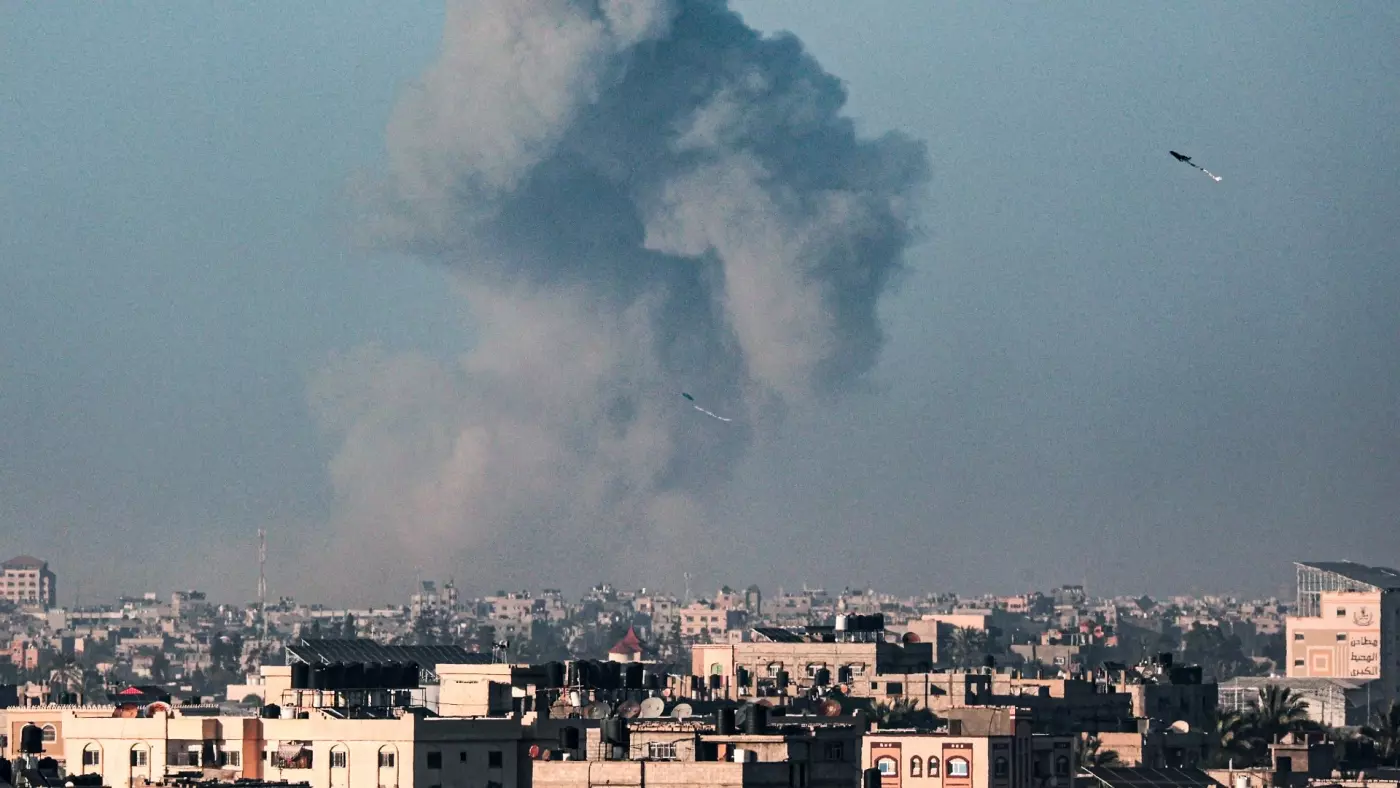
Smoke billows during Israeli bombardment on Khan Younis in the southern Gaza Strip on 3 April 2024 (AFP/Said Khatib)
Resolution passes after 28 of 47 members vote in favour, marking the first time the UN body has taken a position on Gaza war.
The UN Human Rights Council has called for a suspension of arms sales to Israel, marking the first time the body has taken a position since war broke out on 7 October.
The resolution passed on Friday, with 28 of the council’s 47 member states voting in favour, six opposing and 13 abstaining.
The text called on countries to “cease the sale, transfer and diversion of arms, munitions and other military equipment to Israel… to prevent further violations of international humanitarian law and violations and abuses of human rights”.
It also urged UN war crimes investigators to look into all “direct and indirect transfer or sale of arms, munitions, parts, components and dual use items to Israel” and to analyse the “legal consequences of these transfers”.
It also cited the International Court of Justice ruling in January “that there is a plausible risk of genocide” in Gaza, and called for accountability for all possible war crimes committed in the enclave.
The resolution was brought forward by Pakistan on behalf of all Organisation of Islamic Cooperation (OIC) member states excluding Albania.
It called for “an immediate ceasefire” and “for immediate emergency humanitarian access and assistance”.
‘Televised genocide’
Meirav Eilon Shahar, Israel’s permanent representative to the UN in Geneva, accused the Council of having “long abandoned the Israeli people and long defended Hamas”.
“According to the resolution before you today, Israel has no right to protect its people, while Hamas has every right to murder and torture innocent Israelis,” she said. “A vote ‘Yes’ is a vote for Hamas.”
Meanwhile, Palestinian ambassador Ibrahim Mohammad Khraishi said ahead of the vote: “We need you all to wake up and stop this genocide, a genocide televised around the world.”
The US, Germany, Argentina, Bulgaria, Malawi and Paraguay voted against the resolution.
US ambassador Michele Taylor said that “far too many civilians have been killed in this conflict and that every civilian death is a tragedy”, adding that “Israel has not done enough to mitigate civilian harm”.
She said that Washington could not support the resolution because it contained “probelamtic elements”, including failing to condemn Hamas’s surprise attack on Israel on 7 October.
The resolution did not name Hamas, however the text condemned the firing of rockets at Israeli civilian areas and called for “the immediate release of all remaining hostages”.
Israel’s war on Gaza has killed at least 33,091 people, most of whom are women and children.
The resolution urged states to “prevent the continued forcible transfer of Palestinians within and from Gaza”, and warned against an Israeli ground operation in the southern city of Rafah, where over one million Palestinians are sheltering.
It also condemned “the use of starvation of civilians as a method of warfare in Gaza”.
The text insisted on the “imperative of credible, timely and comprehensive accountability for all violations of international law” in Gaza.
https://libya360.wordpress.com/2024/04/ ... to-israel/
A Ring of Enemies Surrounds Israel
Posted by INTERNATIONALIST 360° on APRIL 5, 2024
Abbas Juma
On Monday, the Israeli Air Force struck a building near the Iranian embassy in the Syrian capital. As a result of the attack, the consulate building was destroyed and the commanders of the Iranian Islamic Revolutionary Guard Corps (IRGC) unit, Generals Mohammad Reza Zahedi and Mohammad Hadi Haji Rahimi, were killed.
President Ebrahim Raisi has already warned that “this unfair crime won’t go unanswered.”
“Zionists must know that they will never achieve their sinister goals with such inhumane actions and, day by day, the resistance front and the disgust and hatred of free nations against their illegitimate nature are being strengthened, and this cowardly crime will also not go unanswered,” he said.
What the answer will be is still unknown. However, in recent years, Tehran has managed to become a full-fledged superpower in the region, with support in many countries in the Middle East.
Shadow of Iran
The escalation of the conflict in Gaza, which started with the Hamas-led invasion of Israel last October (“Operation Al-Aqsa Flood”) and the Israel Defense Forces’ (IDF) subsequent military operation that claimed tens of thousands of lives, gave rise to much speculation about the weakness and short-sightedness of the Israeli leadership and the exceptional military training of Israel’s opponents. And it’s not just Hamas that we’re talking about, but Iran.
Iran was immediately accused of being involved in the Hamas attack. The WSJ reported that Iran had trained the Palestinians and instructed them on how to break through the Israeli border.
Moreover, it was said that Tehran had green-lighted the attack. The detailed coordination of the operation allegedly took place during a meeting between senior members of Hamas, Hezbollah, and two other Iran-backed militant groups in Beirut shortly before October 7. Officers of the IRGC also attended the meeting.
Later, the IRGC stated that the Hamas attack had been planned as revenge for the 2020 murder of the head of the Quds Force (part of the IRGC), General Qassem Soleimani. However, rumors about Iran’s direct involvement in the anti-Israeli operation haven’t been verified.
On November 3, 2023, the secretary general of the Lebanese movement Hezbollah, Sayyed Hasan Nasrallah, publicly stated that Iran had not been involved in operation Al-Aqsa Flood.
“The decision behind this operation was 100% Palestinian, and its implementation was 100% Palestinian. [It was launched] in order to draw the attention of the whole world to this problem. Its planners hid it from everyone, even from the movements of the Axis of Resistance,“ he said.
“Absolute secrecy is what ensured the brilliant success of the operation through the element of astonishing surprise. The Islamic Republic of Iran publicly supports the resistance movements but it does not exercise any guardianship over them [or] over their leaders.”
On the one hand, this statement made by the leader of Iran’s main proxy force in the region marked the lines which Iran was not ready to cross. On the other hand, Nasrallah reminded the world that Iran was able to confront Israel and its allies without starting World War III. In fact, the Axis of Resistance – an informal regional alliance between several Middle Eastern nations and political organizations which oppose the West and Israel and are united by Shiite ideology – was created for this very purpose.
In a way, Iran has created the world’s most successful coalition, which proved itself capable not only of restoring order in the region and fighting terrorism, but also challenging global forces.
The “Party of God” heads the resistance
After the explosion in the port of Beirut, when chaos reigned in Lebanon, I talked with one of my friends from Hezbollah. At the time, he assured me that it was largely due to the efforts of Hezbollah that the country didn’t fall into the abyss. And yes, Iranian funding had a lot to do with it. After all, Hezbollah is made up of ordinary Lebanese people who support their country’s economy. However, it would not be fair to say that Hezbollah is totally dependent on Iran and subordinate to it, since Iran has a special relationship with the countries that are part of the Axis of Resistance. However, to gain a deeper understanding, let’s start from the beginning.
RTPeople with Hezbollah flags at the Hezbollah Political Party Rally in Baalbek in Bekaa Valley, Lebanon. © Francesca Volpi / Getty Images
The roots of Hezbollah go back to the early 1960s, when a clerical movement arose in Lebanon that wanted to revive the key principles of Islam. The idea was proposed by several Muslim theologians who had just returned from Najaf, Iraq, where they had been studying in Shia seminaries. Two of these people are particularly noteworthy.
The first is Imam Musa al-Sadr, who was educated in Qom, Iran. He embarked on his political journey in the Lebanese city of Tyre, but his activities soon spread throughout the country. Al-Sadr was very popular, he often spoke at various mass cultural and educational events and surrounded himself with prominent intellectuals from various backgrounds. In 1967, he created the Supreme Islamic Shia Council (SISC), an official religious institution that supported the Shiite community. Many politicians, even those who shared Sadr’s faith, disapproved of this. Nonetheless, al-Sadr continued his political activities. He founded the Movement of the Oppressed and a military group to fight against Israel, called the Lebanese Resistance Regiments (the Amal Movement). In all his sermons, the Imam called for war with Israel. Eventually, Al-Sadr was abducted in Libya, where he came at the invitation of President Muammar Gaddafi on August 31, 1978. His fate remains unknown.
The Imam’s work continues
Modern-day Hezbollah is associated with the name of another Muslim theologian, Ayatollah Muhammad Husayn Fadlallah. This prominent Shiite scholar built a cultural center that included a mosque and a religious school in east Beirut. After moving to the southern suburbs of the city, he led prayers at the Imam al-Rida Mosque and became involved in politics, drawing on the experience of the 1979 Islamic Revolution in Iran. Fadlallah founded the Association of Charitable Organizations, which united many educational, religious, and social institutions. This organization played an important role in the further development of Hezbollah, and Fadlallah himself has been called its leader, although he claimed that this was not true. Gradually, the organization grew, it established a power vertical and acquired symbolic attributes. The Israeli invasion of Lebanon in 1982 greatly contributed to the development of Hezbollah.
In Lebanon, there was an urgent need to create a single Islamic organization that would unite all Shiite groups. Islam was to become the intellectual, religious, ideological, and practical foundation of the proposed political party. The party’s main goal was to resist the occupation, and its leader was to be a sayyed – i.e. a descendant of the Prophet Mohammed.
Nine representatives of the main Islamic groups held a meeting, and issued a document known as the Manifesto of the Nine. This manifesto was sent to Ayatollah Khomeini in Iran, who approved it.
The manifesto was then adopted by the majority of the religious groups in Lebanon. Their leaders dissolved existing partnerships in favor of a single new structure, which became known as Hezbollah. One of the prominent leaders of the movement, Sheikh Naim Qassem, in his book ‘Hezbollah: The Story From Within’, wrote that the Lebanese Shiites enlisted the support of Tehran from the very beginning. The guardians of the Islamic Revolution were given an order to support the allies in their fight against Israel, primarily through military training and the provision of necessary infrastructure. A delegation of high-ranking Iranian military officials came to Syria, and Damascus agreed to deploy the IRGC to Lebanon.
Training camps were set up in Lebanon’s Bekaa region, and a system was developed that included military, religious, and moral training of the fighters. Young people flocked to the training camps. The experience of the Palestinian resistance was also taken into account. All this yielded results in the war with Israel and later allowed Hezbollah to become an official political force that represented the interests of a large part of the population.
Today, Hezbollah continues to build up its military forces, despite external and internal pressure (certain forces in Lebanon speak in favor of disarming the movement). Hezbollah’s military arsenal includes dozens of types of missiles and drones. The group also has ballistic missiles with a range of between 500km and 700km. According to its secretary general, Hezbollah has around 100,000 fighters.
Iran supports Hezbollah with hundreds of millions of dollars each year. Today, the group takes an active part in the Palestinian conflict. According to a recent report, the organization conducted 1,194 military operations on the Israeli border, leading to heavy losses on the Israeli side– an estimated 2,000 people were killed and wounded and hundreds of pieces of military equipment were destroyed.
Iran’s influence in Iraq
In early September, I went on a pilgrimage to Iraq for the annual Arbaeen March, which gathered tens of millions of Muslims from all over the world. We walked 82km from the city of Najaf (which Shia Muslims consider sacred) to the city of Karbala, and throughout this journey, I couldn’t help but wonder how well everything was organized. The people were provided with food, medical services, transport and, most importantly, their safety was ensured. This was largely possible due to the assistance of Iran, which traditionally helps organize this important event for Shia Muslims.
However, just a few decades ago (from 1980-1988), Iraq and Iran were in the midst of a bloody war. In eight years, this conflict claimed the lives of hundreds of thousands of people on both sides. The fact that both countries are considered centers of Shia Islam added to the problem. The main centers of religious education are located both in Iraq and Iran – in the cities of Najaf and Qom, respectively. The main spiritual authority in Iraq is its supreme leader, while in Iraq it is the great Ayatollah Ali al-Sistani. As a result, the Shiites in Iraq became divided based on whether they were oriented towards Iran or Iraq.
The country’s most powerful political forces are connected with Tehran and, as a result, Iraq has become one of the important centers of the Axis of Resistance. This has been clearly demonstrated by the current conflict in Palestine. For example, in November of last year, it was reported that US military bases in Iraq and Syria had been attacked 58 times since the start of the Hamas operation on October 7.
The high level of coordination between the groups which carry out the attacks and Tehran is quite obvious. At the end of January 2024, the media reported that the strike on the US base was carried out a few hours after Iran vowed to avenge the attack on IRGC forces in Damascus. According to some reports, the militants were members of Iraq’s Shiite militia Harakat al-Nujaba. However, many similar groups operate in Iraq.
Popular Mobilization Forces (Al-Hashd Al-Shaabi)
The Popular Mobilization Forces are the largest and most powerful paramilitary group in Iraq. Some reports claim that it became the third-largest military force in the country last year. Official reports show that, from 2001 to 2003, the Popular Mobilization Forces doubled in number – from 116,000 fighters to 238,000. In comparison, the number of soldiers in the regular army increased by 25,000 (to 450,000) over the same period, while the number of police officers in the country increased by 22,250 (to 700,000). The growth is explained by the active financing of this Tehran-backed group.
The need for such an organization arose after the city of Mosul was captured by Islamic State (IS) terrorists in June 2014. At the time, 1,500 terrorists forced thousands of soldiers to flee the city. Prior to this, IS terrorists had captured the cities of Hit, Fallujah, and most of Anbar province. It became obvious that the Iraqi Army was not able to cope with IS. At that time, Iraq’s government decided to integrate the militia into the country’s security services, and Iraq’s Ayatollah Ali al-Sistani issued a ‘fatwa’ on the “righteous jihad” against IS on June 13, 2014. He called on the people of Iraq to take up arms and defend “their country, their people, and their shrines,” and to join the security service. The fatwa strengthened the authority and legitimacy of the Popular Mobilization Forces. In light of the threat posed by IS, intra-Shiite competition subsided and Iran’s influence in Iraq grew.
In June 2014, the city of Tikrit was captured by terrorists and 1,700 military personnel were brutally executed (this is known as the Camp Speicher massacre). The shocking footage quickly spread on social media, and the Popular Mobilization Forces gained public support which increased even more after the fighters managed to push IS out of Tikrit. In April 2015, the city was liberated.
The fighters from the Popular Mobilization Forces were assisted by the IRGC’s Quds Forces, led by Iranian General Qassem Soleimani. To this day, the Popular Mobilization Forces continue to maintain close military, intelligence, and financial ties with Tehran. It became a legal organization at the end of 2016, when the Iraqi parliament legislated for its status. The Interior Ministry listed more than 67 different brigades, which belonged to the umbrella organization. It is important to note that not all brigades are Iranian proxy forces. However, the Badr Organization and Kataib Hezbollah are considered the most authoritative pro-Iranian groups.
By 2019, the Popular Mobilization Forces included both fighters who were oriented towards Iran and those who recognized the authority of Ayatollah al-Sistani.
The Badr Organization
This group came into existence a long time ago. During the Iran-Iraq War, it helped Iran fight against Saddam Hussein. Hadi al-Amiri – the organization’s leader and experienced field commander – was one of the few people whom IS militants truly feared in 2014. Al-Amiri publicly declared his support for Iran. In 30 years, he had come a long way – from a guerrilla fighter who took part in the Iran-Iraq war on the side of Tehran, to a military commander in charge of one of Iraq’s best Shiite brigades. He also served as the Iraqi transport minister. Al-Amiri had gone from a national traitor to an Iraqi hero who was considered a key figure in the fight against IS.
In 2019, the US accused al-Amiri of attacking the US embassy. The attack was a response to US air raids on the militia bases of Kataib Hezbollah, which is allied with Iran.
Kataib Hezbollah
The Iraqi branch of Hezbollah, formed in 2003, has up to 30,000 fighters. Like the Badr Organization, Iraq’s Hezbollah publicly supports Iran, and is oriented towards the Islamic Republic and its supreme leader both spiritually and politically. The group took an active part in resisting US forces during the Iraq War. It also fought against terrorists on the side of Syrian President Bashar Assad. According to some reports, Kataib Hezbollah fighters are trained by instructors from the Quds Forces, which are part of Iran’s IRGC.
The US believes that the recent attack in which three US soldiers were killed on the Jordan-Syria border was carried out by Kataib Hezbollah. The Pentagon publicly declared this. Meanwhile, the militants have claimed responsibility for more than 150 attacks on US troops since the start of the war in Gaza in 2023.
The group used to be headed by Jamal Jafar Ibrahimi, better known as Abu Mahdi al-Muhandis, who came from Basrah, Iraq. However, he died on January 3, 2020 as a result of a US airstrike near Baghdad Airport. The legendary Iranian general, the head of the Quds Force, Qassem Soleimani, was also killed at that time. Al-Muhandis was Iraq’s deputy national security adviser, a member of the Iraqi parliament, and the deputy head of the Popular Mobilization Forces.
In addition to the above-mentioned groups, which operate under the auspices of the Popular Mobilization Forces, we may also note the Iraq-based militant groups “Imam Ali Brigades,” “Harakat Hezbollah al-Nujaba,” and “Saraya al-Khorasani.”
Iran’s influence in Syria
It would not be an exaggeration to say that, during the war against terrorists that began in 2011, Iran, along with Russia, played an important role in saving Syria. From the start of the conflict, Iran sent volunteer fighters, military equipment, medicine, fuel, and ammunition to Syria. Tehran opened a line of credit and allocated huge funds to support the government in Damascus. This helped Assad hold out until 2015, when Russia’s Air Force came to the aid of Syria and radically changed the situation at the front.
During the war years, Iran formed many paramilitary groups in Syria that helped the Syrian Army. However, Shiite militias in the country preserved their independence and were never directly subordinate to the official command of its army.
Liwa Abu al-Fadhal al-Abbas (LAFA)
The Al-Abbas Brigade is closely linked to the Syrian Republican Guard and was named after Abbas ibn Ali – the son of the Shiite Imam Ali. The brigade was formed in 2012 with a specific goal – to ensure the safety of the Sayyida Zeinab mosque in Damascus and other holy sites in Syria revered by Shiites.
Reliable sources claim that the brigade is divided into smaller groups, named after the 12 Shiite Imams, and consists mainly of Iraqi, Lebanese, and Syrian Shiites. Initially, there were about 500 fighters, but in 2013 the number of volunteers increased to 10,000. All fighters completed a 45-day training course in Iran, during which they were trained to use weapons such as grenade launchers, Kalashnikov assault rifles, and sniper rifles.
The Fatemiyoun Brigade
This group was officially formed in 2014. It mainly includes Shiites from Afghanistan, known as the Hazaras (which make up around 10% of the country’s overall population). The fighters are recruited from among the millions of Afghan refugees who live in Iran. In Afghanistan itself, the brigade is known as “Hezbollah in Afghanistan.”
In this way, Tehran recruited Afghans to protect the interests of Syria and the Syrian government, which, throughout history, has been loyal to the Islamic Republic. According to certain information, the Fatemiyoun Brigade is mostly made up of the Army of Muhammad – a Shiite militant group formed during the Soviet-Afghan war. These militants had also fought against the Taliban. The brigade is divided into smaller units. For example, the group includes the Abuzar Brigade, which consists entirely of Afghan militants.
According to the US Institute of Peace (USIP), Fatimiyoun militants are generally between 17 and 35 years old. Shiism isn’t the only motivation for joining the brigade – many fighters face economic problems and are vulnerable due to their migrant status. The report says the militants are often recruited from the same village or workplace – this encourages them to watch over each other and operate more effectively at the front.
The Fatimiyoun Brigade under the command of IRGC officers took part in Assad’s offensives. It fought in the Syrian cities of Homs, Aleppo, Deir ez-Zor and Idlib. The brigades possess modern Russian T-90 tanks. According to various sources, they have between 10,000 and 20,000 fighters. However, this information dates back to 2017, since Iran reduced the number of fighters following the victory over IS. The youngest and oldest fighters, as well as those who violated discipline, were the first to be demobilized. Today, the brigade is no longer active, but experts believe that, if needed, Iran could call up to 40,000 trained fighters at any moment. At least 10,000 of them possess combat experience.
The Zainebiyoun Brigade
This group mostly includes Pakistani Shiites (from the Kurram and Balochistan regions). The name of the unit refers to the main Shiite shrine in Damascus, which was barbarically attacked by IS militants in 2013. After this incident, the region started actively mobilizing Shiite militants. The Pakistani brigade numbered between 2,000 and 5,000 fighters. It was often spotted near Damascus, as well as near Aleppo and Idlib, and has participated in the Syrian Army’s offensives. The IRGC was also responsible for the training and financing of the Zainebiyoun Brigade.
Paradoxically, experts believe that the brigade is one of the least known and poorly studied Shiite armed groups that operated in Syria under Iranian command.
One of the last Pakistani Shiites to die in Syria was Zaki Mohammad Abbas. He was buried in the city of Qom in Iran, which the Shiites consider holy. Little is known about Abbas – his name may be a pseudonym, and his place and year of birth, occupation, as well as the location and circumstances of his death in Syria remain unknown.
In an interview with Panjereh on June 23, 2016, Zainebiyoun’s chief commander, Seyyed Abbas Mousavi, stated that the main reason for the group’s mobilization was the threat to Shiite pilgrimage sites in Syria. He said that Pakistani Shiites wanted to “rush to the defense of the shrines” and take part in the “apocalyptic battle against terrorists.”
According to Mousavi, “Iran is the main center and command headquarters of this war.” The commander also said Pakistani Shiites had written a letter to Supreme Leader Ayatollah Ali Khamenei, asking for permission to fight in Syria, to which Khamenei verbally replied: “Those who are able to fulfill their duty should do so to the best of their ability.”
Several sources claim that the Zainebiyoun Brigade is under the direct command of the IRGC.
Yemen’s Houthis
Until last year, few people talked about the Yemeni fighters from Ansar Allah. But things changed when they rose up against the US and its allies. The Houthi group was the only force in the region that dared to tell the truth about the events in Palestine and stood up for the Palestinians. On January 12, 2024, the US and UK attacked the positions of the Houthis in Yemen. This strike was a response to the blockade imposed by the Houthis on Israeli ships (as well as ships heading to and from Israel) in the Red Sea.
The Houthis are also called “Iran’s proxies,” and it is believed that Iran has transferred modern drones and missiles to Ansar Allah, which made it possible for the group to attack deep-sea targets and modern ships. However, the Houthis are a lot more independent than, for example, Iraq’s militia brigades or Hezbollah. There is no evidence that they are dependent on Iranian aid or under Tehran’s direct influence.
RTHouthi militants after they captured the headquarters of the Sixth Military Zone following rough clashes with Yemeni government forces in northern Sanaa, Yemen. © Mohammed Hamoud / Anadolu Agency / Getty Images
Ansar Allah’s cooperation with Iran resembles a union formed on the basis of ideological and religious affinity. However, the Houthis have their own understanding of the situation in the region, as well as their own goals and methods, which we wrote about in detail in an earlier article.
Chaos has reigned in Yemen since the unification of South Yemen and North Yemen in 1990. The latest conflict began with a dispute between the Sunnis and Shiites in 2004. In Saada, a city in northwestern Yemen, the Shiites spoke out against the Sunni authorities, whom they accused of religious oppression and corruption. Naturally, Iran supported the Shiites. As a result, the religious minority demanded independence and an armed uprising began, which was headed by Hussein Badreddin al-Houthi, who was killed in late 2004. The fighters are called “Houthis” in his honor, but officially, the movement is called Ansar Allah (“Supporters of God”).
After Hussein’s death, his brother Abdul-Malik al-Houthi took over as the movement’s leader and the fighting continued. Yemen’s authorities called the Houthis a “pro-Iranian fifth column.” In response, the movement accused Yemen’s political establishment of treason and said it served the interests of Saudi Arabia’s Wahhabi religious movement. Today, we may assume that Iran and Yemen are closely tied, united by their common goal of fighting against the US and Israel. In this regard, the Houthis are also an important part of the Axis of Resistance.
Conclusion
Tehran resorts to a revolutionary approach in its foreign policy in order to improve its positions in the Middle East. This has transformed it from a peripheral power that barely survived the eight-year war with Iraq into a regional superpower with global ambitions.
Iran’s success in Iraq, Lebanon, Syria, and Yemen is a result of its long-standing support for the region’s main political forces. Moreover, Iran has a deep understanding of the cultural characteristics of those countries where the Shiites make up either the majority, or the socially and politically important part of the population.
As for Iraq, Syria, and Lebanon, we must also note the economic ties between these nations and Iran. Iraq and Iran are involved in cultural exchange – for example, Shiite scholars and religious pilgrims regularly travel between the two countries. This allows the two nations which were once at war to grow closer to each other.
Iran not only engages in the policy of exporting the Islamic Revolution, but also protects the interests of the Shiites and acts as a guarantor of their security. Iran has proven that it does not withdraw when it comes to war. At the same time, Iran promotes the pro-Palestinian agenda and the liberation of Jerusalem, which makes it popular among many Sunnis in the region.
As of today, Iran and the Axis of Resistance coalition which it heads are the only forces in the region that are ready to confront the US. Meanwhile, the Americans are losing their authority in the Middle East and becoming more despised by the local population.
https://libya360.wordpress.com/2024/04/ ... ds-israel/
*******
Israeli army admits chopper attack killed 7 Oct captive
Israeli attack helicopters, drones, and tanks killed many of the 1,200 Israeli civilians and soldiers who died during Hamas' Operation Al-Aqsa Flood.
News Desk
APR 5, 2024

An Israeli combat helicopter shoots flares above the Israeli border with the Gaza Strip, December 21, 2023. (Photo credit: Chaim Goldberg/Flash90)
The Israeli army released a statement on 5 April where it admitted that Efrat Katz, 68, was likely killed by Israeli helicopter fire that targeted a vehicle with Hamas fighters taking her captive to Gaza on 7 October.
"It appears that during the battles and the airstrikes, one of the combat helicopters that took part in the fighting, fired at a vehicle that had terrorists in it, and which, in retrospect, based on the testimonies, also had hostages in it," read the statement.
"As a result of the fire, most of the terrorists manning the vehicle were killed, and most likely, Efrat Katz was killed as well." Her body is said to remain in Gaza.
The army claimed that according to its investigation, the Israeli captives present in the vehicle "could not be distinguished by the existing surveillance systems." The commander of the Air Force "did not find fault in the operation by the helicopter crew, who operated in compliance with the orders in a complex reality of war," the statement added.
Israel's Channel 12 reported in December that Katz had been killed by Israeli helicopter fire, citing the testimony of Katz' grown daughter, Doron Katz-Asher. Doron explained that she and her two young daughters were injured in the same helicopter strike.
While the army claims Katz's killing was an accident, Israeli media has elsewhere reported that the military leadership issued the Hannibal Directive on 7 October. The controversial directive orders Israeli forces to deliberately kill their own soldiers or civilians if they are being taken captive by an enemy.
This indicates that the army's killing of Katz and its killing of many other Israelis who died on 7 October may have been deliberate. Hamas wished to take Israeli captives to exchange for the thousands of Palestinians held captive in Israeli prisons.
Israel claims that Hamas massacred some 1,200 Israeli soldiers and civilians during Operation Al-Aqsa Flood. However, Israeli claims of Hamas ISIS-style atrocities, such as beheading babies, have proven fabrications, and Israeli forces killed large numbers of Israelis who died that day.
In response to the Hamas attack and effort to take captives in the settlements near Gaza, Israeli forces used heavy weapons from Apache attack helicopters, Zik armed drones, and Merkava tanks. As a result, Israeli troops killed many of their own civilians, including many who were buried in their collapsed homes after airstrikes and burned alive in cars near the Gaza border and at the Nova music festival near Re'im through the use of incendiary munitions.
https://thecradle.co/articles/israeli-a ... ct-captive
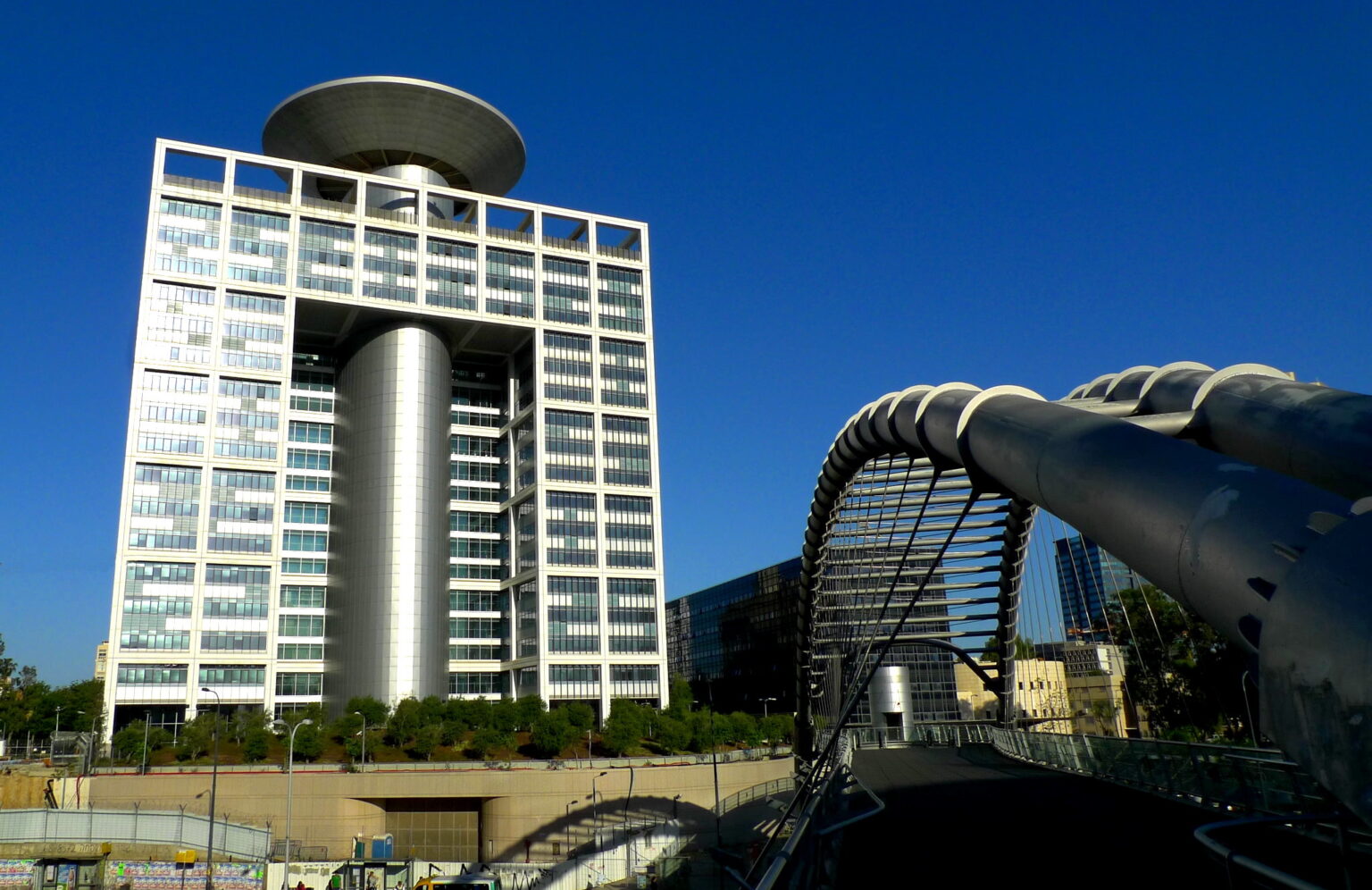

 that has been targeting international shipping in the Red Sea, in this handout picture released on January 12, 2024. U.S. Central Command. [Source: reuters.com]
that has been targeting international shipping in the Red Sea, in this handout picture released on January 12, 2024. U.S. Central Command. [Source: reuters.com]




